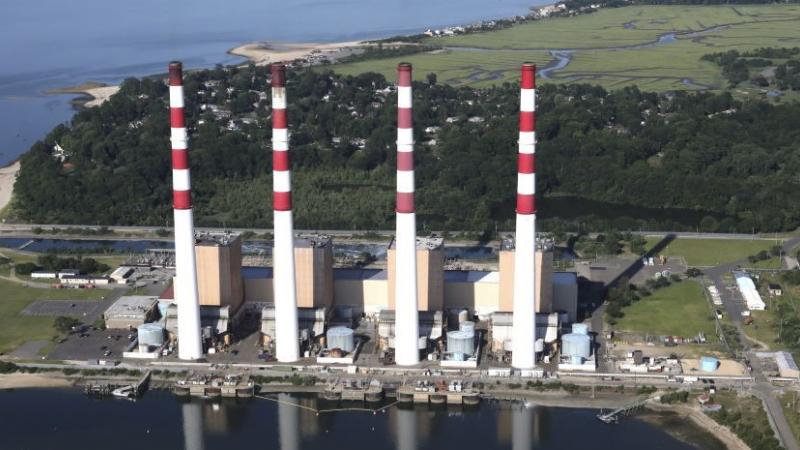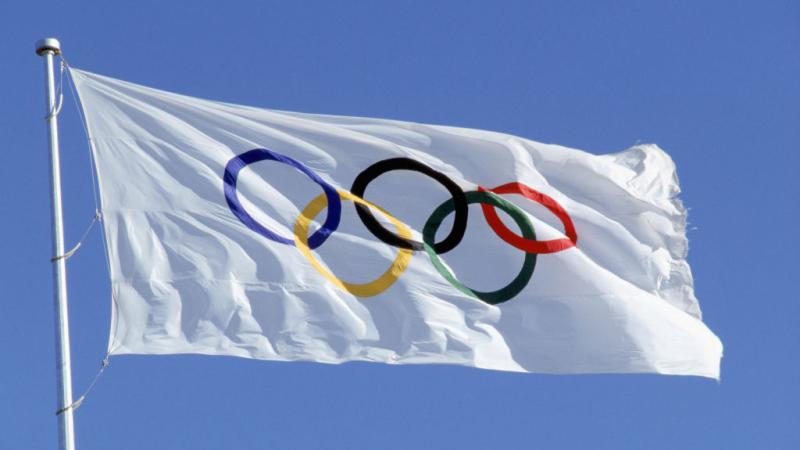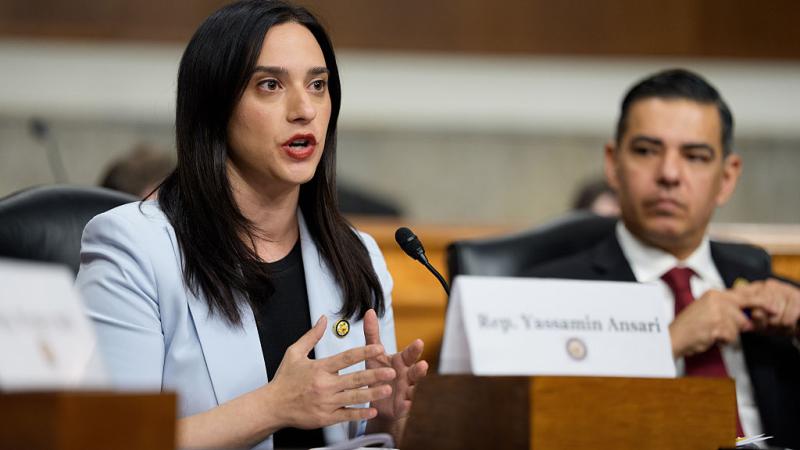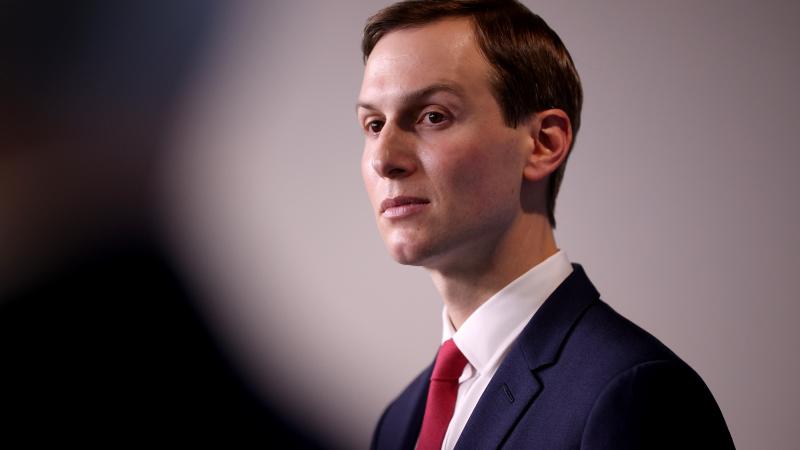Less than a year after Biden announced his EV push, industry shows his targets may be unobtainable
An analysis by energy expert Robert Bryce found that Ford Motor Company incurred an operating loss of its EV business in 2023 that exceeded its total profit for the year. The company lost $64,731 on every electric vehicle it sold last year.
President Joe Biden announced in April that he had a vision that 50% of all new vehicle sales in the U.S. would be electric by 2030. The White House said that "Because of President Biden’s leadership and historic investments, electric vehicle sales have tripled and the number of publicly available charging ports has grown by over 40 percent since he took office. There are now more than three million EVs on the road and over 135,000 public EV chargers across the country."
At the same time the president was announcing his vision, the EPA was proposing emissions standards that would require about 66% of cars to be zero emissions by 2032. Less than a year later, the president’s boasts and plans seem to be falling apart, because of industrial challenges, the economy, and market forces.
Big losses
An analysis by energy expert Robert Bryce found that Ford Motor Company incurred an operating loss on its EV business in 2023 that exceeded its total profit for the year. Citing the company’s earnings report, Bryce reports the automaker had an operating loss of $4.7 billion on its EV lines before interest and taxes. The company’s reported net income was $4.3 billion, with $176 billion in revenues. The company sold 72,608 EVs in 2023, meaning Ford lost $64,731 on every EV it sold.
“Given the company’s 2023 results, it’s clear that Ford’s headlong plunge into the EV market has been an unmitigated disaster and that the company would be far more profitable had it ignored the EV fad,” Bryce wrote.
Bryce has been reporting on problems with EVs for years. His fourth book in 2011, “Power Hungry: The Myths Of “Green” Energy and the Real Fuels Of The Future,” contained a chapter dedicated to the problem of EVs.
“Despite their promise, the all-electric car continues to be hampered by the same drawbacks that have haunted it for a century: limited range, slow recharge rates, lack of recharging stations, and high costs, particularly when compared to conventional cars,” Bryce wrote.
In January, Bryce testified before the Senate Committee on Energy and Natural Resources in a hearing concerning electric vehicle supply chains. Among the points he made in his testimony is that EVs, citing newspaper archives, have been hyped for over a century.
A New York Times article in 1911 reported that the electric car “is cleaner and quieter” and “much more economical.” A 1915 Washington Post article predicted that “prices on electric cars will continue to drop until they are within reach of the average family.” Bryce cited several more articles hyping EVs through the 1960s, 1970s and 1980s. “The history of the EV is a century of failure tailgating failure,” Bryce said at the hearing.
Fleet hurts
Several companies were originally listed as supporters of the White House’s announcement of Biden’s plan to have 50% of all new car sales be EVs by 2030. Among them was rental giant Hertz.
The company, the White House said, was “committing to substantially increase its electric vehicle rentals this year forecasting nearly two million EV rentals in 2023.”
Last month, instead, Hertz stated in regulatory filings that it was selling 20,000 electric vehicles in its rental fleet in favor of gas-powered cars, citing higher collision and damage costs in its EV fleet, Reuters reported. As a result, the company would not meet its goal of having 25% of its fleet be electric.
Adding to the bad news for Biden's EV push, this week, the rental company canceled plans to buy 65,000 Polestar cars when the resale value of the EVs it’s trying to sell off collapsed, according to the Financial Times.
In 2022, Hertz signed a deal to buy 65,000 Polestar cars over five years. Polestar, the Financial Times reported, would waive Hertz’s requirement to buy a number of Polestar cars this year, if Hertz would agree not to sell Polestar vehicles too soon or too cheaply.
David Blackmon, an energy analyst who publishes “Energy Absurdities,” told Just The News that the failure of EVs to live up to Biden’s hopes illustrates one of the problems with top-down federal directives. The federal government is “trying to pick winners and losers. That never works, ever. Now, on top of everything else, we have an election coming up at the end of this year, in which the incumbent who has forced all these policies into law and regulation is struggling to keep up with the opposition,” Blackmon said.
Automakers, he said, followed along with the plans and made substantial investments, on the belief that demand for EVs would continue to grow at the rate they were. Instead, while the pace of growth reflected the enthusiasm of early adopters, the average car buyer asked a lot more questions about charging availability, the vehicles’ ranges, and overall costs. The answers are not convincing the average car buyer to join the EV adoption craze.
“What they're [automakers] running into right now is a government-forced transition that the market hasn't caught up to yet, and isn’t showing signs that it will ever catch up. That's gonna be a real problem for Ford and GM going forward,” Blackmon said.
You were warned
The Biden administration’s EV mandates received substantial pushback. In July, the National Automobile Dealers Association (NADA) submitted comments on the EPA’s proposed emissions standards, warning that the Biden administration’s proposal ignored consumer demand, the vehicles were too costly, and they lacked the infrastructure to support them.
In November, the House passed an appropriations bill that included language to stop the EPA from spending money to finalize or implement its proposed rule for one year.
Also in November, Rep. Lisa McClain, R-Mich., penned a statement opposing the proposed standards, which was signed by 223 Republicans in the House and Senate.
In December, the House passed the Choice in Automobile Retail Sales (CARS) Act, and Sen. Mike Crapo, R-Idaho, introduced a companion bill in the Senate the previous October. Rep. Tim Walberg, R- Mich., penned an Op/Ed explaining the CARS Act. Biden's plans are "not a 'silver bullet" to solving emissions problems the lawmaker said.
In November, 4,000 dealerships across the country wrote Biden to tell him the mandates were “unrealistic” and their lots were filling up with EVs they couldn’t sell. That list has now grown to nearly 4,700 dealerships.
Supporters of the mandates continue to defend the proposals. The Department of Energy wanted to “set the record straight” and argued in November that EV sales continue to grow and consumer interest isn’t waning.
The Center for American Progress, a left-wing public policy and research organization, argued in January that EVs are continuing to grow in popularity.
It is true, depending on how one looks at the data, that EV sales are hitting record highs. The trajectory, however, doesn’t appear that it will be enough to reach Biden’s 50% vision by 2030. A new analysis by Morgan Stanley estimates that the total EV market in the U.S. by 2030 will be only 25%. That number includes all EVs by all automakers. Excluding EV-only manufacturers like Tesla, the U.S. market for EVs will be approximately 10%, according to the analysis.
“Platitudinous goals from legacy ICE companies targeting 50%-type EV penetration by end of decade does not properly account for the relevant geographic mix, demographic mix, segment mix and does not allow for the inclusion of large pure-play companies in a global EV market that still faces significant hurdles in terms of supply chain, geopolitics, cost and economics,” the report said.
The critics of Biden’s EV demands have warned of these problems for months, and so far, their predictions have been coming true.
The Facts Inside Our Reporter's Notebook
- would be electric by 2030
- EPA was proposing emissions standards
- analysis by energy expert Robert Bryce
- company’s earnings report
- Power Hungry: The Myths Of “Green” Energy and the Real Fuels Of The Future
- Bryce testified before the Senate Committee on Energy and Natural Resources
- announcement
- Reuters reported
- selling 20,000 electric vehicles in its rental fleet
- according to the Financial Times
- Polestar
- Energy Absurdities
- reflected the enthusiasm of early adopters
- average car buyer asked a lot more questions
- National Automobile Dealers Association (NADA) submitted comments
- passed an appropriations bill
- which was signed by 223 Republicans in the House and Senate
- House passed the Choice in Automobile Retail Sales (CARS) Act
- Rep. Tim Walberg, R- Mich., penned an Op/Ed
- 4,000 dealerships across the country wrote Biden
- now grown to nearly 4,700 dealerships
- argued in November that EV sales continue to grow
- Center for American Progress
- argued in January that EVs are continuing to grow in popularity
- EV sales are hitting record highs
- new analysis by Morgan Stanley estimates















